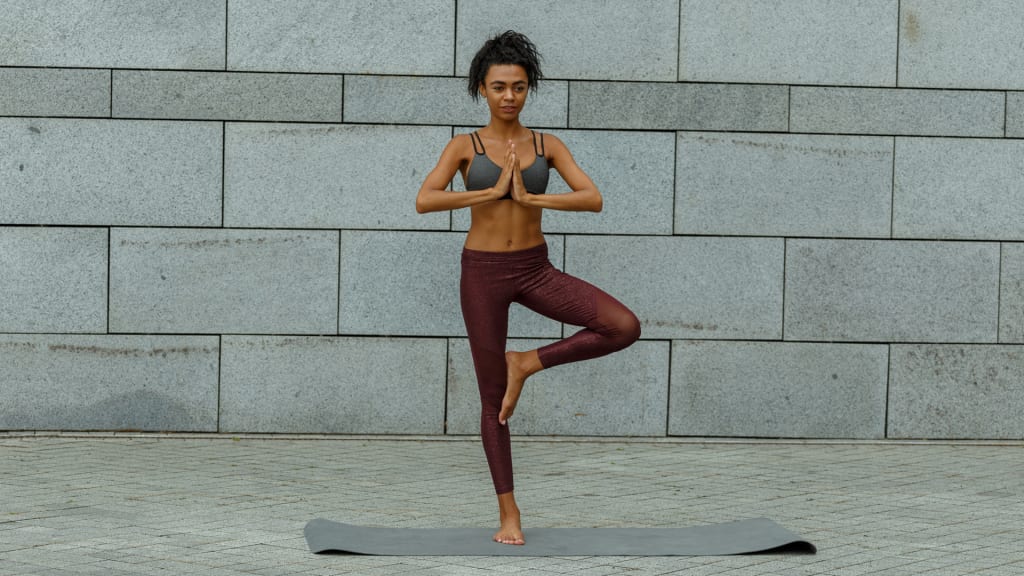
Yoga is a physical and mental practice that originated in ancient India. It is a holistic approach to health that includes physical postures (asanas), breathing techniques (pranayama), meditation, and philosophy. One of the many benefits of practicing yoga is stress reduction.
Stress is a natural response to a perceived threat or challenge, and it is a necessary and beneficial part of human survival. However, chronic stress can have detrimental effects on our physical and mental health, including high blood pressure, heart disease, anxiety, and depression. Therefore, it is essential to manage stress effectively.
Yoga is an excellent tool for stress management because it helps to activate the parasympathetic nervous system, which is responsible for the "rest and digest" response. This response helps to counteract the effects of the sympathetic nervous system, which is responsible for the "fight or flight" response.
Yoga helps reduce stress in several ways, including:
- Regulating the breath: One of the primary ways yoga reduces stress is by regulating the breath. The practice of pranayama, or breathing techniques, can help calm the mind and body. When we are stressed, our breathing becomes shallow and rapid, which can exacerbate feelings of anxiety and tension. By focusing on slow, deep breathing, we can activate the parasympathetic nervous system and induce a relaxation response.
- Reducing muscle tension: Stress can cause muscle tension, which can lead to physical discomfort and pain. Yoga asanas help to release tension in the body, particularly in areas like the neck, shoulders, and lower back. By reducing muscle tension, we can feel more relaxed and comfortable in our bodies.
- Improving sleep quality: Stress can disrupt our sleep patterns, leading to insomnia or poor sleep quality. Yoga can help improve sleep quality by promoting relaxation and reducing physical discomfort. Additionally, yoga can help regulate the circadian rhythm, which is essential for healthy sleep.
- Promoting mindfulness: Mindfulness is the practice of being present and aware of our thoughts, feelings, and surroundings. When we are stressed, we may become overwhelmed by our thoughts and emotions, which can lead to a spiral of negative thinking. Yoga encourages mindfulness by encouraging us to focus on our breath and physical sensations. By practicing mindfulness, we can become more aware of our stress triggers and learn to respond to them in a more positive way.
- Boosting mood: Stress can have a significant impact on our mood, leading to feelings of anxiety, depression, and irritability. Yoga can help boost mood by releasing endorphins, which are feel-good chemicals in the brain. Additionally, the practice of yoga can increase levels of GABA, a neurotransmitter that has a calming effect on the brain.
- Strengthening the nervous system: Chronic stress can weaken the nervous system, making us more susceptible to illness and disease. Yoga can help strengthen the nervous system by stimulating the vagus nerve, which is responsible for regulating the parasympathetic nervous system. Additionally, yoga can help increase levels of BDNF (brain-derived neurotrophic factor), which is a protein that promotes the growth and survival of nerve cells.
- Providing a sense of community: Practicing yoga in a group setting can provide a sense of community and support. Social support is essential for managing stress, as it can help us feel more connected and less isolated.
In addition to these benefits, research has shown that yoga can be an effective treatment for stress-related disorders such as anxiety and depression. For example, a study published in the Journal of Alternative and Complementary Medicine found that a 12-week yoga intervention was effective in reducing symptoms of anxiety and depression in individuals






Comments
There are no comments for this story
Be the first to respond and start the conversation.